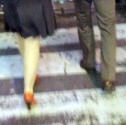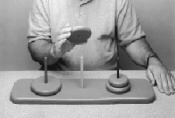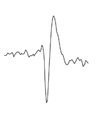Tom Stafford's Blog, page 130
August 18, 2010
A natural state of mind
 ScienceLine has an excellent article on ecopsychology – a branch of cognitive science that looks at the impact of the environment on the mind.
ScienceLine has an excellent article on ecopsychology – a branch of cognitive science that looks at the impact of the environment on the mind.
Originally considered a bit wishy washy due to a lack of hard data and more than a touch of hippie chic, it's proponents are now starting to collect good evidence on the mental benefits of the natural world.
Don't be put off by the spectacularly bad headline ("Can a Stroll in the Park Replace the Psychiatrist's Couch?" – what?) as the piece actually...
August 17, 2010
Falling out of love with e-dating
 Marie Claire has a fascinating short interview with psychologist Mark Thompson who was apparently hired by a big name internet dating website to work on 'scientific matchmaking' – but recently jumped ship when he became disillusioned with the industry.
Marie Claire has a fascinating short interview with psychologist Mark Thompson who was apparently hired by a big name internet dating website to work on 'scientific matchmaking' – but recently jumped ship when he became disillusioned with the industry.
Buyer beware: the guy has just written his own book on sex and relationships, although his comments on dating sites don't seem to directly bear on his book promotion efforts.
Regardless, it's actually quite refreshing to hear someone give a...
A slow motion mind during extreme danger?
 NPR has a fantastic short radio segment on whether we really do experience time more slowly when our life is in danger.
NPR has a fantastic short radio segment on whether we really do experience time more slowly when our life is in danger.
The piece riffs on a 2007 study called 'Does Time Really Slow Down during a Frightening Event?' led by neuroscientist David Eagleman who discusses the project on the show.
The experimenters wanted a way to find a way to test whether we suddenly start experiencing time in greater detail when in mortal danger, or whether it just seems that way when we look back on it.
Of...
Dark restaurant alters appetite and eating
 We often assume that our appetite depends on how much food we've eaten, but a new study conducted in a completely dark restaurant has demonstrated that we don't feel any more full if secretly slipped extra large portions of food. What we see, it seems, plays a big role in how hungry we feel.
We often assume that our appetite depends on how much food we've eaten, but a new study conducted in a completely dark restaurant has demonstrated that we don't feel any more full if secretly slipped extra large portions of food. What we see, it seems, plays a big role in how hungry we feel.
The research, led by psychologist Benjamin Scheibehenne and published in the journal Appetite, invited participants to have lunch in a restaurant in downtown Berlin.
While the entrance bar was lit, the...
August 16, 2010
A gut reaction to moral transgressions
 The Boston Globe has an excellent article on whether 'gut feeling' emotions, particularly disgust, are the unrecognised basis of moral judgements and social customs.
The Boston Globe has an excellent article on whether 'gut feeling' emotions, particularly disgust, are the unrecognised basis of moral judgements and social customs.
It's an in-depth feature article that gives a great overview of the idea that social judgements may have an emotional basis, and, more controversially, that this tendency may have developed as part of an evolved aversion to things thought likely to cause infection or disease.
Research has shown that people who are more easily...
Scientists go rafting
 The New York Times has an odd feature article on how a group of cognitive scientists went into the 'wilderness' supposedly as part of a "quest to understand the impact on the brain of heavy technology use".
The New York Times has an odd feature article on how a group of cognitive scientists went into the 'wilderness' supposedly as part of a "quest to understand the impact on the brain of heavy technology use".
As far as I can make out, though, the entire story is 'scientists go rafting'. No research was conducted, or, in this situation, could have been usefully conducted to really test the impact of technology on the mind and brain. The main thrust of the piece is that the researchers discussed ...
August 15, 2010
A series of famous cases
 BBC Radio 4 have just started a new season of Case Study that looks at some of the most famous and important cases in the history of psychology.
BBC Radio 4 have just started a new season of Case Study that looks at some of the most famous and important cases in the history of psychology.
The first is on HM, and although there's nothing in the programme that's particularly new about the science of memory, it does give a much fuller account of how the famous amnesic patient was as a person.
His recent death has allowed the shroud of anonymity to be lifted and the programme interviews his ex-carers and researchers who worked with him...
August 14, 2010
How power corrupts
 The Wall Street Journal examines how positive psychological attributes are associated with people gaining power and why these exact same attributes might be eroded once people have achieved a certain level of influence.
The Wall Street Journal examines how positive psychological attributes are associated with people gaining power and why these exact same attributes might be eroded once people have achieved a certain level of influence.
The piece looks at studies that show, contrary to popular belief, that sly and social devious people are less likely to be put in positions of influence by their peers but that when the psychological effect of power takes hold, these same people start to become less honest.
A...
August 13, 2010
2010-08-13 Spike activity
Quick links from the past week in mind and brain news:

NPR has an excellent short piece on when we became 'mentally modern' and began to use symbolic thought.
The awesome Neuroskeptic covers a mind-boggling new study that reported the use of anti-depressant and quit-smoking drug bupropion to treat Starcraft addiction in South Korean teens.
Seed Magazine discusses the psychology of isolation in space – in an excerpt from Mary Roach's forthcoming book on space travel.
Dodgy headline but there's a f...
August 12, 2010
Disease epidemic kills without contact
 The excellent Providentia blog covers a previously under-recognised psychological danger of disease epidemics: increased suicides in unaffected people.
The excellent Providentia blog covers a previously under-recognised psychological danger of disease epidemics: increased suicides in unaffected people.
A recently published study looked at how the suicide rate changed during the SARS epidemic in Hong Kong, which claimed almost 300 lives between November 2002 and August 2003, finding that it prompted greater levels of self-harm among those not directly affected by the outbreak.
The study also examined coroner's reports to understand the...
Tom Stafford's Blog
- Tom Stafford's profile
- 13 followers



